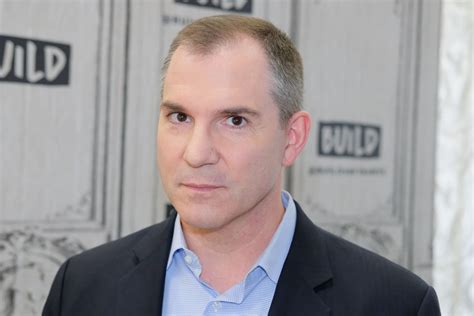A Quote by Jose Ortega y Gasset
The common man, finding himself in a world so excellent, technically and socially, believes it has been produced by nature, and never thinks of the personal efforts of highly endowed individuals which the creation of this new world presupposed. Still less will he admit the notion that all these facilities still require the support of certain difficult human virtues, the least failure of which would cause the rapid disappearance of the whole magnificent edifice.
Quote Topics
Admit
Been
Believes
Cause
Certain
Common
Common Man
Creation
Difficult
Disappearance
Edifice
Efforts
Endowed
Excellent
Facilities
Failure
Finding
Highly
Himself
Human
Individuals
Least
Less
Magnificent
Man
Nature
Never
New
New World
Notion
Personal
Produced
Rapid
Require
Socially
Still
Support
Technically
Thinks
Virtues
Which
Whole
Will
World
Would
Related Quotes
It is a matter of glimpsing that in God's new creation, of which Jesus's resurrection is the start, all that was good in the original creation is reaffirmed. All that has corrupted and defaced it--including many things which are woven so tightly in to the fabric of the world as we know it that we can't imagine being without them--will be done away. Learning to live as a Christian is learning to live as a renewed human being, anticipating the eventual new creation in and with a world which is still longing and groaning for that final redemption.
An Individual, whatever species it might be, is nothing in the Universe. A hundred, a thousand individuals are still nothing. The species are the only creatures of Nature, perpetual creatures, as old and as permanent as it. In order to judge it better, we no longer consider the species as a collection or as a series of similar individuals, but as a whole independent of number, independent of time, a whole always living, always the same, a whole which has been counted as one in the works of creation, and which, as a consequence, makes only a unity in Nature.
All the acquisitions or losses wrought by nature on individuals, through the influence of the environment in which their race has long been placed, and hence through the influence of the predominant use or permanent disuse of any organ; all these are preserved by reproduction to the new individuals which arise, provided that the acquired modifications are common to both sexes, or at least to the individuals which produce the young.
The definitions of humanism are many, but let us here take it to be the attitude of those men who think it an advantage to live in society, and, at that, in a complex and highly developed society, and who believe that man fulfills his nature and reaches his proper stature in this circumstance. The personal virtues which humanism cherishes are intelligence, amenity, and tolerance; the particular courage it asks for is that which is exercised in the support of these virtues. The qualities of intelligence which it chiefly prizes are modulation and flexibility.
This harmony that human intelligence believes it discovers in nature - does it exist apart from that intelligence? No, without doubt, a reality completely independent of the spirit which conceives it, sees it or feels it, is an impossibility. A world so exterior as that, even if it existed, would be forever inaccessible to us. But what we call objective reality is, in the last analysis, that which is common to several thinking beings, and could be common to all; this common part, we will see, can be nothing but the harmony expressed by mathematical laws.
Man, by his very nature, tends to give himself an explanation of the world into which he is born. And this is what distinguishes him from the other species. Every individual, even the least intelligent, the lowest of outcasts, from childhood on gives himself some explanation of the world. And with it he manages to live. And without it, he would sink into madness.
This world of ours is a new world, in which the unit of knowledge, the nature of human communities, the order of society, the order of ideas, the very notions of society and culture have changed, and will not return to what they have been in the past. What is new is new, not because it has never been there before, but because it has changed in quality.
And yet our distress comes from no failure of substance. We are stricken by no plague of locusts. Compared with the perils which our forefathers conquered, because they believed and were not afraid, we have still much to be thankful for. Nature still offers her bounty and human efforts have multiplied it. Plenty is at our doorstep, but a generous use of it languishes in the very sight of the supply.
Among the innumerable mortifications which waylay human arrogance on every side may well be reckoned our ignorance of the most common objects and effects, a defect of which we become more sensible by every attempt to supply it. Vulgar and inactive minds confound familiarity with knowledge and conceive themselves informed of the whole nature of things when they are shown their form or told their use; but the speculatist, who is not content with superficial views, harasses himself with fruitless curiosity, and still, as he inquires more, perceives only that he knows less.









































